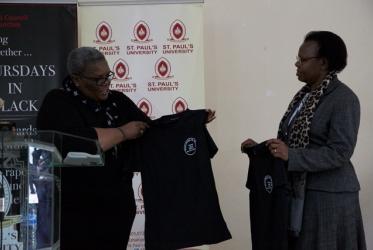Displaying 41 - 60 of 66
Tveit in South Africa: “ We know. We dare. We can.”
12 June 2016
Placing family in the HIV response vanguard
10 December 2015
WCC Executive Committee speaks out on migrant crises
12 June 2015
Addressing the HIV threat through education and training
23 February 2015
Weaving together personal faith and climate change
23 September 2014
“You don't all have to be the same”
01 July 2014










